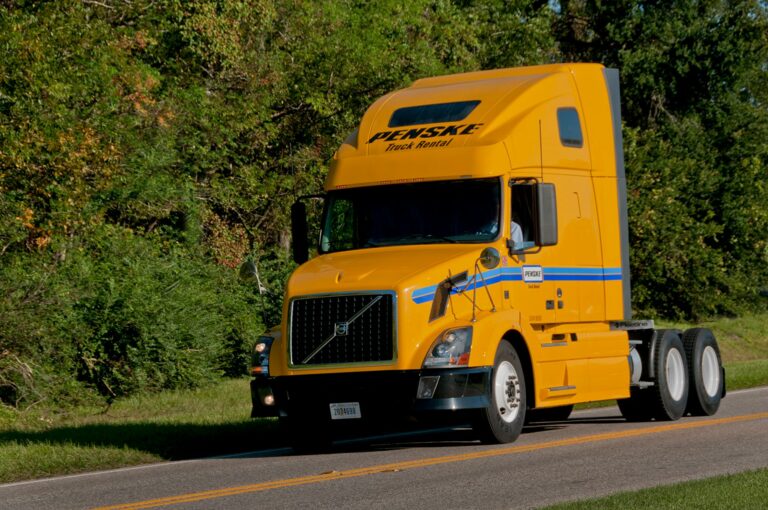Used U-Haul Trucks For Sale: Your Comprehensive Guide to a Versatile Investment
Used U-Haul Trucks For Sale: Your Comprehensive Guide to a Versatile Investment cars.truckstrend.com
In a world increasingly focused on practical solutions and smart investments, the concept of repurposing existing assets holds significant appeal. Among the most intriguing options for individuals and businesses seeking durable, versatile, and affordable vehicles are used U-Haul trucks. Far from merely being rental workhorses, these meticulously maintained vehicles are regularly cycled out of U-Haul’s vast fleet and offered for sale, presenting a unique opportunity to acquire a reliable truck for a fraction of the cost of a new commercial vehicle.
This comprehensive guide delves into every facet of purchasing a used U-Haul truck, from understanding their inherent value and available types to navigating the buying process, considering crucial factors, and leveraging practical tips for a successful acquisition. Whether you’re an entrepreneur needing a delivery vehicle, a homeowner embarking on a major renovation, or an adventurer planning a custom RV conversion, a used U-Haul truck might just be the robust, cost-effective solution you’ve been searching for.
Used U-Haul Trucks For Sale: Your Comprehensive Guide to a Versatile Investment
Why Consider a Used U-Haul Truck? Unpacking the Value Proposition
The idea of buying a vehicle that has seen countless miles as a rental truck might initially raise an eyebrow. However, several compelling reasons make used U-Haul trucks a surprisingly intelligent purchase:
- Exceptional Cost Savings: This is arguably the primary driver. Used U-Haul trucks are significantly more affordable than comparable new commercial vehicles or even many used trucks from private sellers. Their high mileage is factored into the price, offering incredible value.
- Proven Durability and Reliability: U-Haul’s business model hinges on having a dependable fleet. As such, their trucks undergo rigorous, scheduled maintenance by trained technicians. While they accumulate high mileage, this consistent upkeep often means critical components are well-maintained or replaced, leading to a surprisingly robust vehicle.
- Versatility Beyond Moving: While designed for hauling, these trucks are adaptable. They are ideal for small businesses (delivery services, mobile workshops, landscaping), farmers, large families, hobbyists needing space for equipment, or even as a base for RV/tiny home conversions.
- Ready Availability: U-Haul constantly rotates its fleet, meaning there’s a steady supply of trucks available for sale across various locations, making it easier to find a suitable option near you.
- Simple, Common Mechanics: Most U-Haul trucks are built on reliable Ford or General Motors chassis, utilizing widely available parts and familiar engine platforms. This simplifies future maintenance and repairs, as most mechanics are familiar with these components.

Types of Used U-Haul Trucks Available
U-Haul’s fleet comprises several vehicle types, though not all are consistently available for direct sale to the public. The most common offerings you’ll find include:
-
Box Trucks (Moving Vans): These are by far the most prevalent type of used U-Haul truck for sale. They come in various sizes, each suited for different needs:
- 10-foot Box Truck: Often built on a cutaway van chassis (like a Ford E-Series or GMC Savana), these are the smallest box trucks, ideal for studio apartments, small deliveries, or personal projects.
- 15-foot Box Truck: A popular mid-size option, suitable for 1-2 bedroom moves or medium-sized cargo. These are typically built on Ford E-Series or F-Series chassis.
- 17-foot Box Truck: A slightly larger version of the 15-foot, offering more cubic feet for slightly larger moves or cargo.
- 20-foot Box Truck: Designed for 2-3 bedroom homes, these provide substantial cargo space.
- 26-foot Box Truck: The largest option, perfect for multi-bedroom homes or significant commercial hauling. These are often built on heavier-duty Ford F-Series or GMC C-Series chassis.
- Key Features: Many U-Haul box trucks feature "Mom’s Attic" (an overhead storage space above the cab) and a low loading deck for easier access. Most are gasoline-powered for simplicity and lower operating costs compared to diesel.
-
Cargo Vans: Less common for direct sale through U-Haul’s program, but sometimes available. These are typically Ford E-Series or GMC Savana vans, ideal for smaller deliveries, tradespeople, or mobile service businesses.
-
Pickup Trucks: Very rarely sold directly by U-Haul, as their primary focus is on the box trucks. If you find one, it’s usually a private resale.
Where to Find Used U-Haul Trucks for Sale: Your Action Plan
The primary and most reliable source for purchasing a used U-Haul truck is directly from the company itself.
-
U-Haul’s Official Sales Program:
- Website: The cornerstone of their sales operation is their dedicated website: uhaul.com/trucksales. This platform allows you to browse available inventory by location, truck size, and sometimes even price range.
- Local U-Haul Centers: While the website is central, you can also inquire at larger U-Haul centers. They often have specific trucks on-site designated for sale, and staff can guide you through the process or direct you to the online inventory.
-
Online Marketplaces (Secondary Market):
- Craigslist, Facebook Marketplace, eBay Motors: Occasionally, individuals or small businesses who previously bought a U-Haul truck might resell it here. Be more cautious on these platforms, as the "as-is" nature is even more pronounced, and you won’t have the same level of potential information as buying directly from U-Haul.
-
Auctions:
- While U-Haul primarily sells directly, some fleet vehicles might end up in commercial or government auctions. This is less common for the general public to access and requires more expertise.
The Buying Process: A Step-by-Step Guide to a Smart Purchase
Acquiring a used U-Haul truck requires diligence, much like buying any other used vehicle. Follow these steps for a smoother experience:
- Define Your Needs and Budget: Before browsing, determine the truck size you need, your maximum budget (including potential initial maintenance, taxes, and registration), and any specific features that are crucial.
- Browse U-Haul’s Inventory: Visit uhaul.com/trucksales and use their search filters. Pay attention to location, truck type, and listed price.
- Schedule an Inspection (Crucial Step!): This cannot be overstated. Contact the U-Haul center where the truck is located to schedule a viewing.
- Bring a Mechanic: If you’re not mechanically inclined, invest in a pre-purchase inspection by a trusted, independent mechanic. This cost is minimal compared to potential repair bills.
- DIY Inspection: If you’re confident, meticulously check:
- Engine: Listen for unusual noises, check for leaks, examine belts and hoses.
- Transmission: Check fluid levels (if accessible), look for leaks, note shifting behavior during a test drive.
- Brakes: Check pad wear, rotor condition, and pedal feel.
- Tires: Inspect tread depth and even wear.
- Suspension: Look for sagging, broken springs, or worn shocks.
- Frame & Body: Check for significant rust (especially on the frame), collision damage, or major dents. Expect cosmetic imperfections.
- Interior: Test all lights, wipers, horn, AC/heater, radio.
- Verify VIN: Ensure it matches the title and vehicle.
- Review Maintenance Records (If Available): While U-Haul maintains its fleet, individual vehicle records might not be readily shared in detail. Ask if any recent major repairs have been done.
- Test Drive: Take the truck for a decent drive. Pay attention to:
- Engine performance (acceleration, power)
- Transmission shifting (smoothness, no slipping)
- Braking (straight, no pulling, good stopping power)
- Steering (no excessive play, straight tracking)
- Any unusual noises, vibrations, or smells.
- Negotiation (Limited Scope): U-Haul’s prices are generally firm and competitive for the value. However, if you find minor issues during inspection, you might try a small negotiation, though success is not guaranteed.
- Financing and Paperwork: Secure your financing in advance if needed. Understand the sales agreement, title transfer process, and any associated fees.
- Insurance and Registration: Get insurance quotes before finalizing the purchase, as commercial-style vehicles can sometimes have different rates. Be prepared to register the vehicle in your state promptly.
Important Considerations Before Buying
- High Mileage: Expect high mileage. These trucks accumulate hundreds of thousands of miles. Focus more on consistent maintenance and the pre-purchase inspection than just the odometer reading.
- Wear and Tear: They are rental trucks. Expect dings, scratches, interior wear, and possibly some minor body damage. These are factored into the lower price.
- Gasoline vs. Diesel: Most U-Haul box trucks are gasoline-powered. This means simpler mechanics and cheaper fuel, but often lower fuel economy than a diesel equivalent.
- Post-Purchase Maintenance: Budget for immediate post-purchase maintenance. Even with U-Haul’s care, a fresh set of fluids, filters, and a thorough check-up by your own mechanic is wise.
- Title and Registration: Ensure you receive a clear title. Understand your state’s requirements for registering a former commercial vehicle for personal or business use.
- Emissions & Inspections: Check your local and state emissions testing and safety inspection requirements before buying.
Tips for a Successful Purchase
- Be Patient: The perfect truck for your needs might not be available immediately. Check U-Haul’s sales site regularly.
- Set a Realistic Budget: Don’t forget to account for sales tax, registration fees, insurance, and potential initial maintenance or repairs.
- Prioritize Inspection: This is the single most important step. A good inspection can save you thousands in future repairs.
- Understand Your Use Case: Don’t buy a 26-foot truck if you only need a 10-foot. Assess your true space requirements.
- Read the Fine Print: Familiarize yourself with U-Haul’s terms of sale.
Potential Challenges and Solutions
- Challenge: High Mileage Concerns.
- Solution: Focus on the truck’s maintenance history and the thorough pre-purchase inspection. A well-maintained high-mileage engine can outlast a neglected lower-mileage one.
- Challenge: Cosmetic Imperfections.
- Solution: Accept them as part of the deal. The lower price reflects this. For many buyers, functionality outweighs aesthetics. Paint touch-ups or wraps can always improve appearance later.
- Challenge: Limited Negotiation Room.
- Solution: U-Haul’s prices are generally non-negotiable or have very little wiggle room. Their pricing is already competitive for the value offered. Focus on getting the best condition truck at the listed price.
- Challenge: Finding a Specific Model/Size.
- Solution: Be persistent. Check the U-Haul sales website frequently, as inventory changes rapidly. Expand your search radius if possible.
- Challenge: Transitioning to Private Use.
- Solution: Understand your state’s DMV requirements for title transfer, registration, and potential reclassification from commercial to private use if applicable. Ensure your insurance provider is aware of the vehicle’s history and intended use.
Representative Price Table for Used U-Haul Trucks For Sale
It’s important to note that prices for used U-Haul trucks vary significantly based on location, exact model, year, mileage, and overall condition. The table below provides estimated ranges for common types of U-Haul trucks you might find for sale. These are for general guidance only and actual prices may differ.
| Model/Type | Typical Year Range | Engine Type (Common) | Common Mileage Range (miles) | Estimated Price Range (USD) | Key Features / Notes |
|---|---|---|---|---|---|
| 10-ft Box Truck | 2008-2016 | Gasoline (V8/V10) | 150,000 – 280,000 | $5,000 – $9,000 | Smallest box, easy to maneuver, "Mom’s Attic" common. |
| 15-ft Box Truck | 2010-2018 | Gasoline (V8/V10) | 180,000 – 350,000 | $7,000 – $12,000 | Popular mid-size, low deck, good for personal/small biz. |
| 17-ft Box Truck | 2010-2018 | Gasoline (V8/V10) | 180,000 – 350,000 | $8,000 – $13,000 | Slightly larger version of 15ft, similar chassis. |
| 20-ft Box Truck | 2012-2019 | Gasoline (V8/V10) | 200,000 – 400,000 | $9,000 – $15,000 | Substantial cargo space, often heavier-duty chassis. |
| 26-ft Box Truck | 2014-2020 | Gasoline (V8/V10) | 250,000 – 500,000+ | $12,000 – $20,000+ | Largest option, commercial-grade chassis, high capacity. |
| Cargo Van | 2008-2016 | Gasoline (V6/V8) | 150,000 – 300,000 | $6,000 – $10,000 | Less common for direct sale, good for smaller loads. |
Note: These are estimates. Prices can fluctuate based on market demand, regional differences, and specific vehicle condition. Always verify current pricing on uhaul.com/trucksales.
Frequently Asked Questions (FAQ) about Used U-Haul Trucks
Q1: Are used U-Haul trucks reliable given their high mileage?
A1: Yes, generally. U-Haul has a rigorous, preventative maintenance program for its entire fleet. While mileage is high, the consistent professional upkeep often means critical components are in good working order or have been replaced. A thorough pre-purchase inspection is still crucial.
Q2: Do used U-Haul trucks come with a warranty?
A2: No, used U-Haul trucks are typically sold "as-is, where-is" with no warranty expressed or implied. This makes the pre-purchase inspection even more vital.
Q3: Can I finance a used U-Haul truck?
A3: Yes, U-Haul may offer financing options through third-party lenders, or you can secure financing through your bank or credit union. Be prepared for slightly higher interest rates due to the age and mileage of the vehicles.
Q4: Are parts easy to find for U-Haul trucks?
A4: Yes, overwhelmingly so. Most U-Haul trucks are built on common Ford E-Series, F-Series, or GMC Savana/C-Series chassis, utilizing widely available engines and components. Parts are readily available at auto parts stores and through dealership networks.
Q5: What’s the typical mileage on a used U-Haul truck for sale?
A5: It varies, but expect high mileage, typically ranging from 150,000 miles for smaller, older models up to 500,000 miles or more for the largest box trucks.
Q6: Can I convert a U-Haul box truck into an RV/tiny home?
A6: Absolutely! Their sturdy construction, ample interior space, and "Mom’s Attic" make them popular platforms for DIY RV, tiny home, or mobile workshop conversions.
Q7: What kind of fuel do U-Haul trucks use?
A7: The vast majority of U-Haul box trucks and vans sold are gasoline-powered. This means they run on regular unleaded fuel, which is generally cheaper and more readily available than diesel.
Q8: How often does U-Haul sell trucks?
A8: U-Haul continuously cycles older or high-mileage trucks out of its rental fleet. New inventory is added to their sales website regularly, so it’s worth checking back frequently if you don’t find what you need immediately.
Conclusion: A Smart Investment for the Savvy Buyer
Purchasing a used U-Haul truck offers a compelling blend of affordability, durability, and versatility. While they come with high mileage and the battle scars of a working life, their consistent maintenance history and robust construction make them excellent candidates for a second life in private or commercial hands. From serving as a dedicated delivery vehicle for a burgeoning business to becoming the foundation for your next great adventure, a used U-Haul can be a surprisingly smart and cost-effective investment. By approaching the purchase with careful research, a thorough inspection, and a clear understanding of your needs, you can unlock the immense potential hidden within these familiar orange workhorses.




